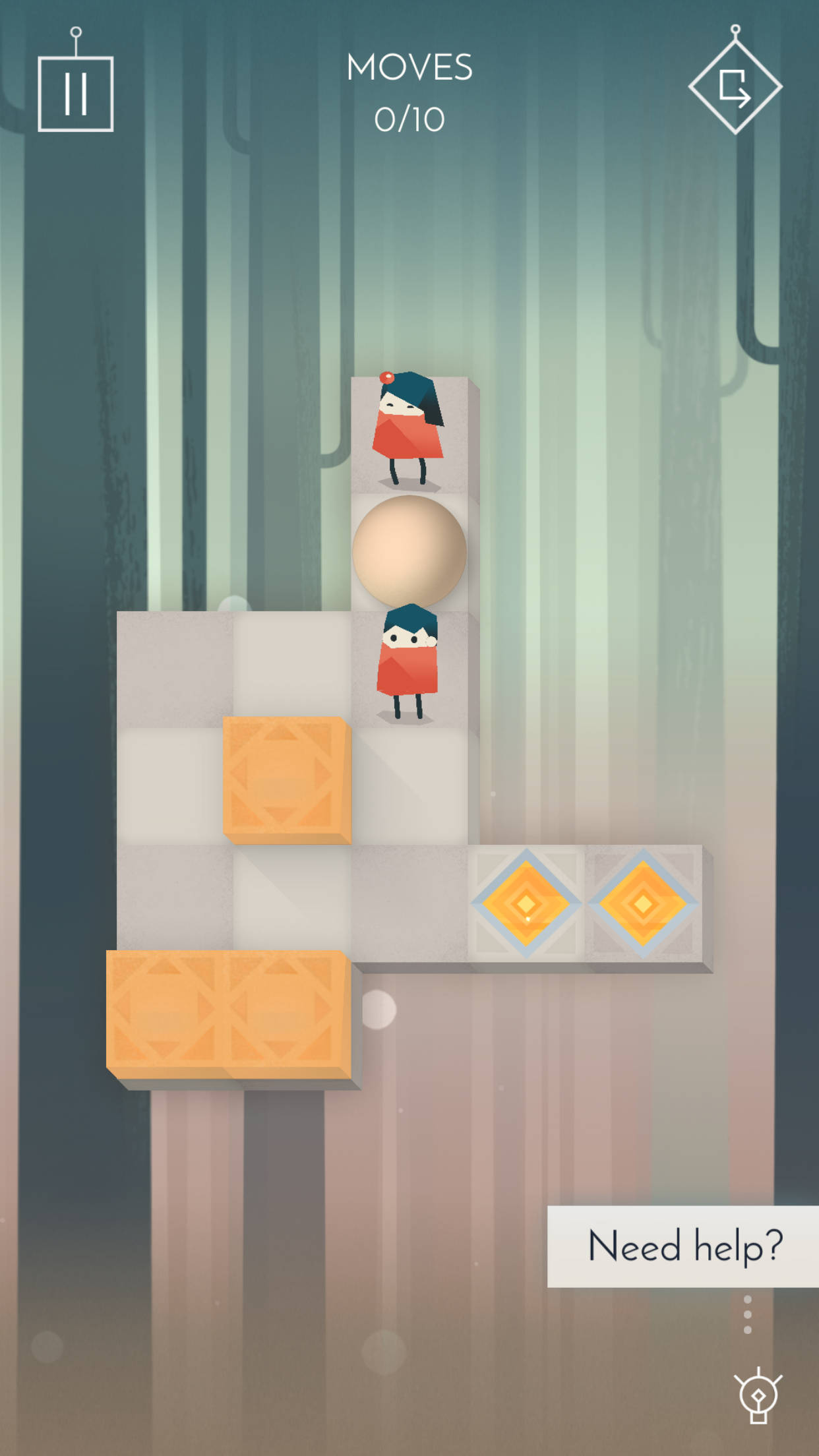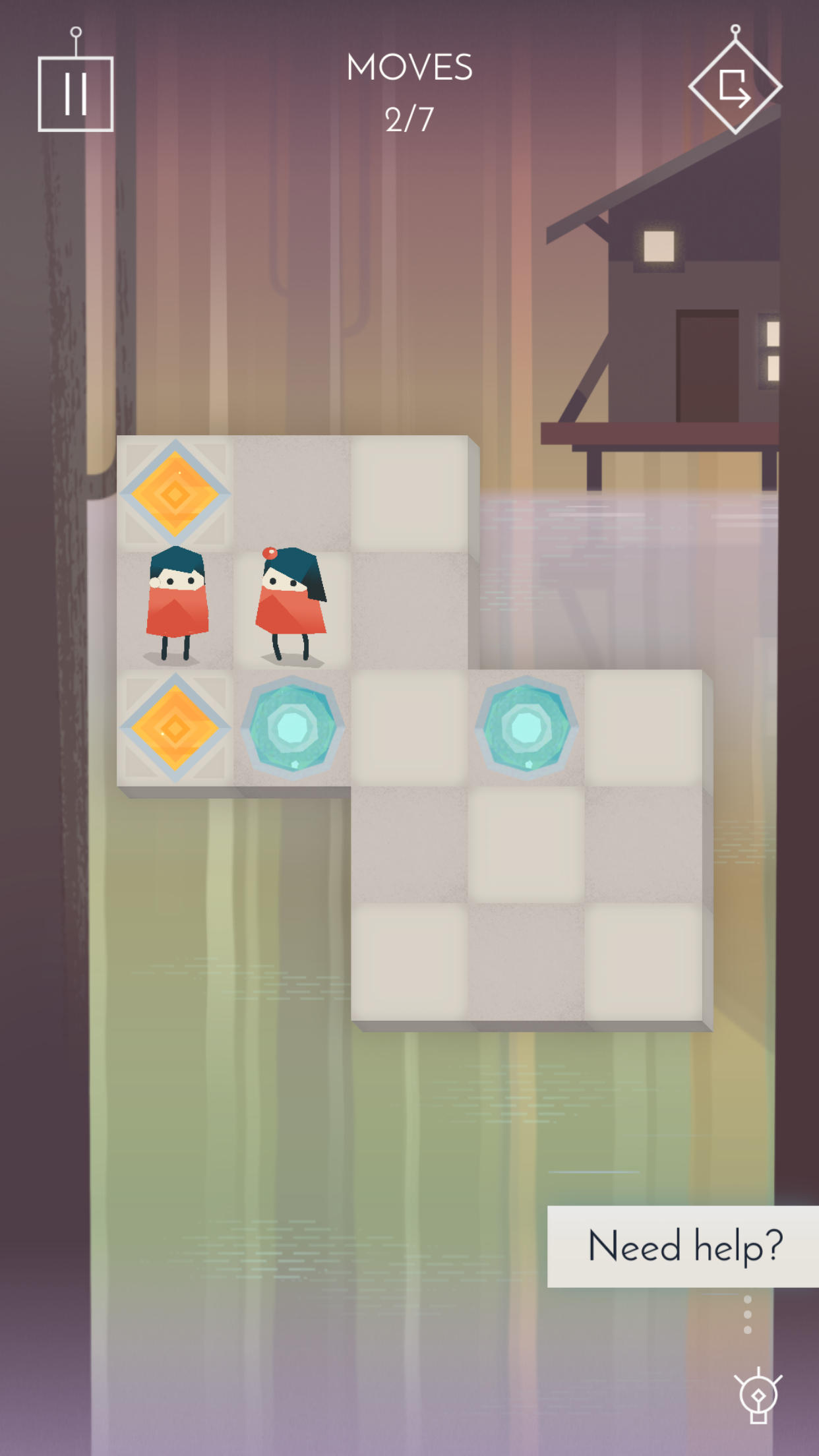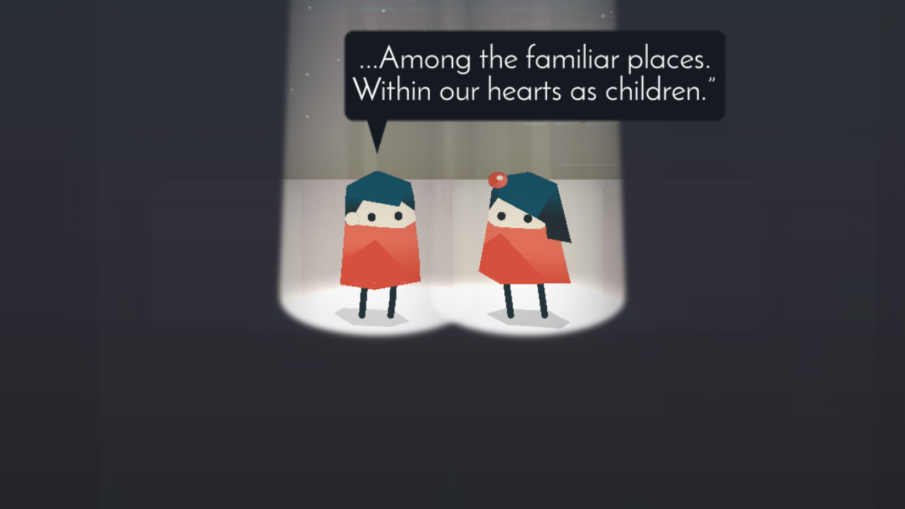iOS, Android •
Link Twin is a simple, pleasantly-presented puzzler. Though modest in scope and number, its puzzles pass my idiosyncratic test: they sometimes stumped me until I stopped playing, and were immediately solvable when I returned. That tells me that there are various ways to approach them which are valuable enough to attract one’s thinking but easily accessible enough that breaking one’s chain of thought makes it possible to take a new tack. This would leave me perfectly satisfied, but for the fact that the minimal narrative hints at something more.
The structure of the puzzles is always the same–you must move the twins to their goals. The trouble is, they both obey all commands; issue a command to move right, and they both move right, like animals or children to whom you’ve just taught a new trick and now can’t stop. Since the goals are often far apart, this usually means you’ll spend time doing things like telling both twins to walk left, knowing that one of them will bump into a wall instead of moving. As the game progresses through its hundred levels (and, presumably, the twins gain numerous contusions and bruises from all their face-first collisions with solid rock), various elements are added to the board and gently introduced: rolling balls, switches, and teleporters among them.

There are periodic gestures at a story, but they’re more evocations of emotion than clear narrative, and they have no connection to the mechanics. They aren’t bad, but it’s hard not to see this as a missed opportunity. One can easily imagine a falling-out between the twins, in which they begin behaving in exactly opposite ways for a series of puzzles, or a traumatic event which leaves one of them catatonically immobile except when pushed, followed by a recovery period in which that twin follows only every other command. For a superb example of mechanics used to strike a terrifically meaningful story beat, I must take this opportunity to recommend Brothers: A Tale of Two Sons. It would be unreasonable to expect the simple cutscenes of Link Twin to connect with players as deeply as Brothers, but the possibility of doing something a bit more integrated than “Look, teleporters! How unexpected and completely unexplained!” doesn’t seem too much to ask.
If you’re wondering why I have no difficulty accepting giant stone blocks, human-sized spheres, and a hundred challenges to stand in particular spots which all occur on sheer-sided mesas of irregular accumulations of square shapes, I’ll point out that the ancient Greeks apparently thought nothing of Gods wanting to turn themselves into geese to rape mortal women. Culture really undermines any hope I might have had of rationality.

I don’t mean to suggest that Link Twin is lazy. There are numerous touches which seem to have received loving attention. Some are as minor as the tendency of the twins to hold hands when adjacent, or the evocative but not terrifying falling animation. The difficulty begins so very low that no real tutorial is necessary, and ramps up gradually until a new element is introduced. At that point, it resets to being so easy that you can focus on poking at what’s new, and then increases slightly more rapidly until the cycle repeats (until the final few puzzles, which let you off more easily than is often the case with puzzle games). Because the levels are never very large nor overly complex, each attempt at a solution is fairly brief. This seems ideally tailored for mobile gaming–suited to short periods of play, with a visual style which won’t shock or vex anyone looking over your shoulder, and highly legible gameplay which removes any barrier to beginning. Though there aren’t a very large number of puzzles, the challenge of completing each in as few moves as possible may extend its life for some players.
Link Twin’s a well-executed, modest spatial puzzler nicely suited to gaming on the go. If you’re in the market for something to occupy your mind in queues, it’s a solid choice, especially if you enjoy optimizing your solutions. It does feel like a bit of a missed opportunity to do some clever work with integrating narrative and mechanics, and its longevity is limited for those who find such optimization tedious. But it requires so little of its players that a small offering of puzzling joy is all that’s needed to make the game a success.
• Link Twin on the App Store, $2
• Link Twin on Google Play, $2



Start the discussion at discourse.statelyplay.com